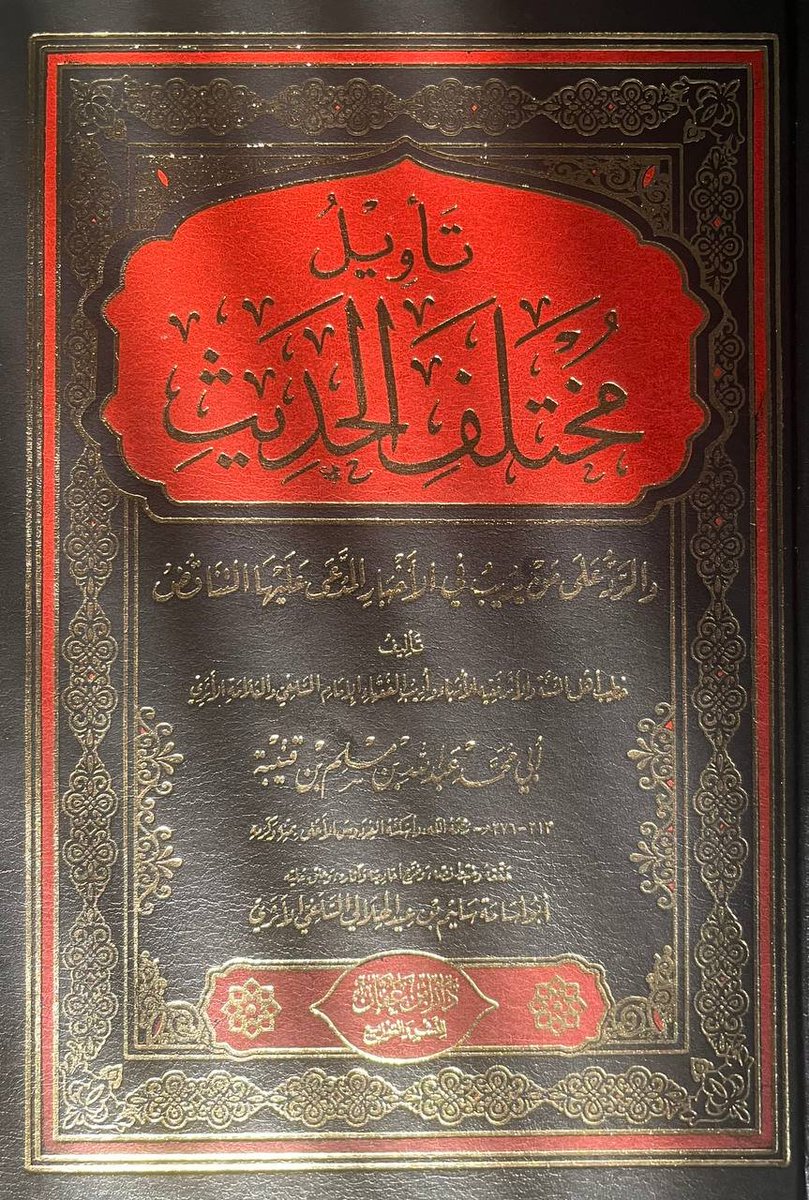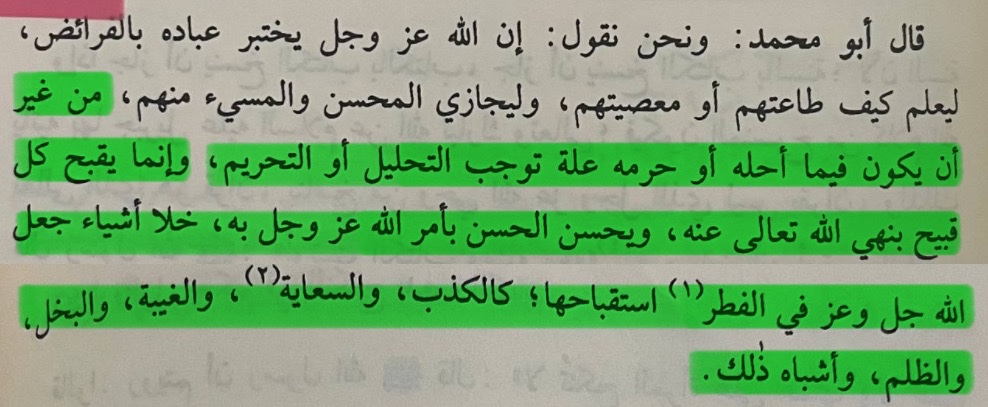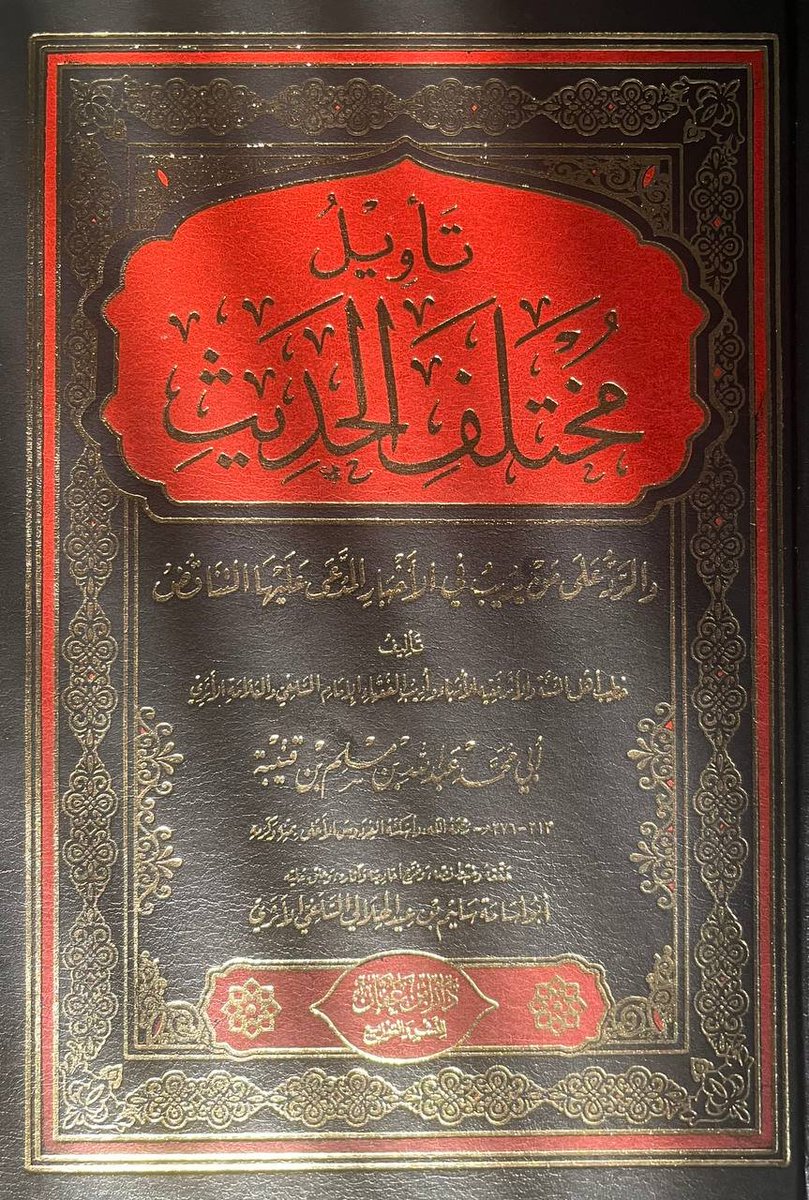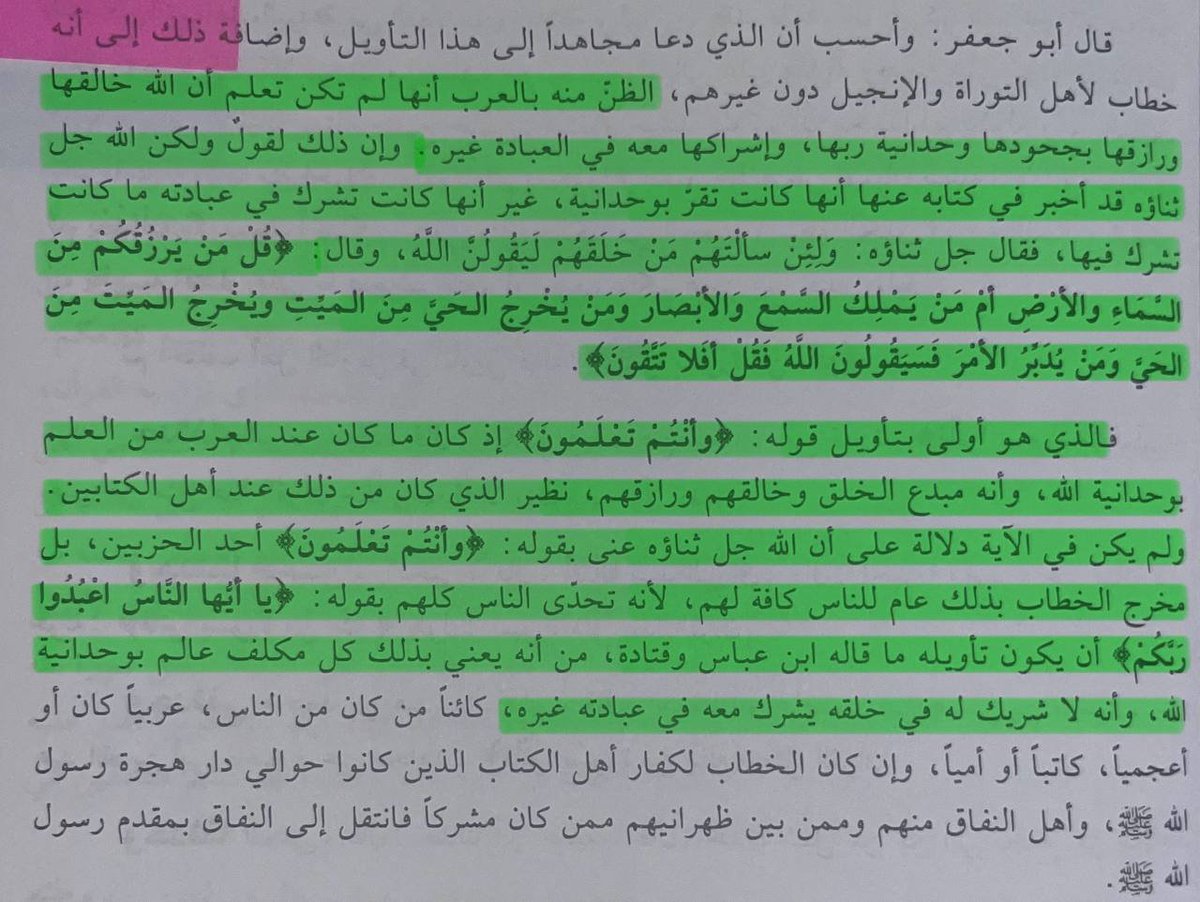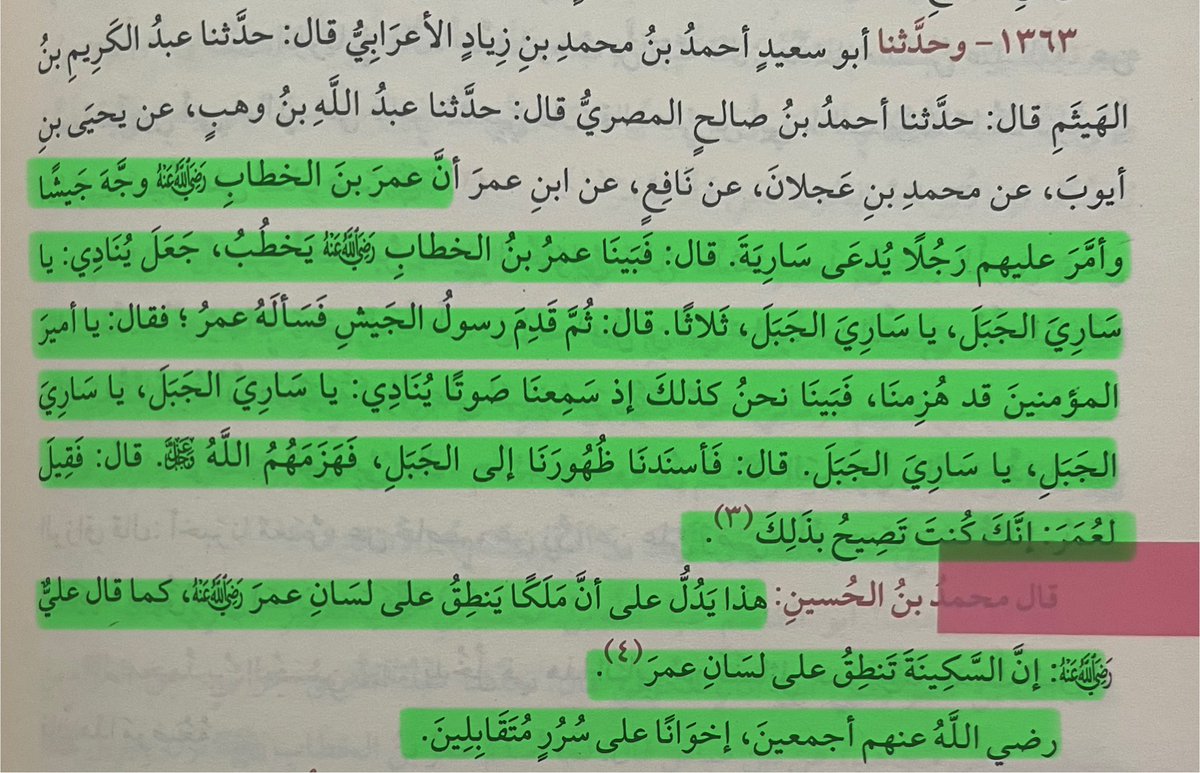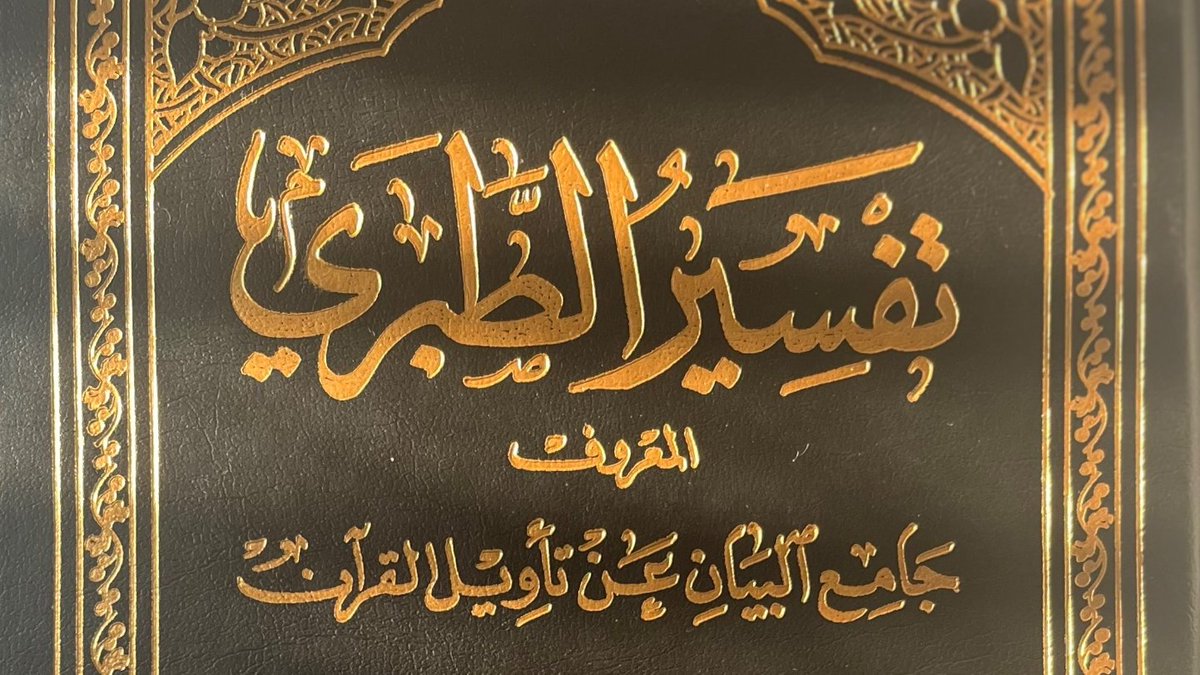"As for following by example, it is with the distinguished scholars, the early jurists, and the tireless worshippers who are unmatched and whose rank cannot be reached. Like Sufyān al-Thawrī, Mālik Bin Anas, al-Awzāʿī, Shuʾbah, al-Layth Bin Saʾd, and the scholars of major cities;
and like Ibrāhīm Bin Adham, Muslim al-Khawwāṣ, al-Fuḍayl Bin ʿIyāḍ, Dāwūd al-Ṭā’ī, Muḥammad Bin al-Naḍr al-Ḥārithī, Aḥmad Bin Ḥanbal, Bishr al-Ḥāfī, and those like these who been near to our time. 
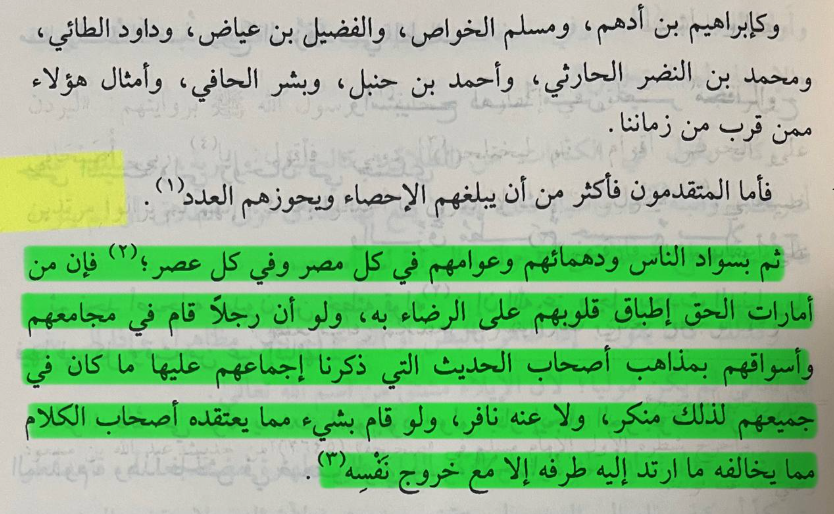
As for the earlier ones, they are too many to be enumerated or encompassed by number. Thereafter the common people, the masses, and laypeople in every land and in every age. For among the signs of truth is the unison of their hearts in contentment with it.
If a man were to stand in their gatherings and markets proclaiming the doctrines of the Aṣḥāb al-Ḥadīth which we mentioned their consensus upon, there would not be for that a denier among their entirety, nor would any turn away from it.
But if he had stood with something of which Ahl al-Kalām believe in – among which contradicts them – his glance would not return to himself except along with the removal of his soul [from his body]."
• • •
Missing some Tweet in this thread? You can try to
force a refresh

